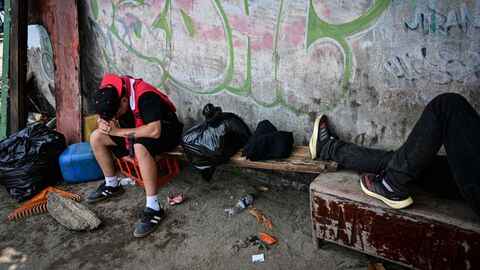After the US war in Vietnam ended in 1995, more than 8,600 Vietnamese nationals who are currently facing “an order of removal” from the US were migrants who typically arrived as refugees.
According to an attorney briefed on the subject, Vietnam has promised to expeditiously handle fresh requests for deportations after US threats of trade tariffs and visa bans, as well as to help the repatriation of a few dozen Vietnamese nationals held in the US.
The action is a part of a larger package of concessions the nation is thinking about making in order to avoid tariffs that may destroy its economy, which is the most dependent on exports to the US of all the major trading partners of the US.
According to US-based immigration lawyer Tin Thanh Nguyen, Vietnam has committed to reply to US deportation petitions within 30 days, “which is a lot faster than they have ever done in the past.”
According to a Vietnamese official he spoke with, Hanoi also consented to grant travel passports to 30 jailed Vietnamese nationals in the first month of the second Trump administration, opening the door for their repatriation.
Vietnam “historically denied issuing them and dragged out the process,” he claimed, essentially stopping many deportations, making that rare.
Spokesman for the White House National Security Council Brian Hughes responded to a question concerning Vietnam by saying: “We expect all countries to take back their citizens in the US illegally, or face consequences such as visa sanctions or tariffs.”
A request for response from Vietnam’s foreign ministry was not answered.
Vietnam would “continue to cooperate closely with the US on the repatriation of citizens in accordance with signed agreements,” according to a Vietnamese ministry official earlier in February.
Trade hazards
According to official figures, 37,660 persons were deported in the first month of the second Trump administration, primarily to countries in Latin America. Although the exact number of Vietnamese deported is unknown, some have been taken to Panama.
The Vietnamese source informed Tin that when US officials threatened to impose trade tariffs and unidentified visa measures on Vietnam if they did not repatriate illegal migrants, Vietnam altered course.
Although Trump has not specifically targeted Vietnam in his flurry of tariff pronouncements, his aides have, and the nation is seen to be at risk of tariffs due to its significant trade surplus and numerous trade barriers.
Being one of the biggest exporters of chips to the US, Vietnam would also be extremely vulnerable to threatened international taxes on semiconductors.






